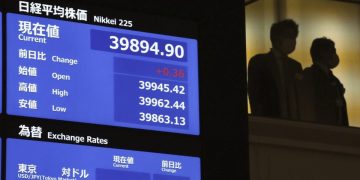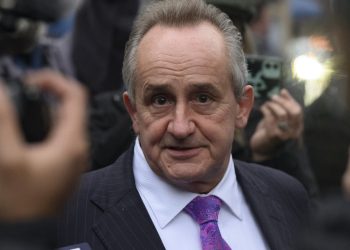WASHINGTON – When police respond to a person gripped by a mental health or drug crisis, the encounter can have tragic results. Now a government insurance program will help communities set up an alternative: mobile teams with mental health practitioners trained in de-escalating such potentially volatile situations.
The effort to reinvent policing after the death of George Floyd in police custody is getting an assist through Medicaid, the federal-state health insurance program for low-income people and the largest payer for mental health treatment. President Joe Biden’s recent coronavirus relief bill calls for an estimated $1 billion over 10 years for states that set up mobile crisis teams, currently locally operated in a handful of places.
Many 911 calls are due to a person experiencing a mental health or substance abuse crisis. Sometimes, like with Daniel Prude in Rochester, New York, the consequences are shocking. The 41-year-old Black man died after police placed a spit hood over his head and held him to the pavement for about two minutes on a cold night in 2020 until he stopped breathing. He had run naked from his brother’s house after being released from a hospital following a mental health arrest. A grand jury voted down charges against the officers.
Dispatching teams of paramedics and behavioral health practitioners would take mental health crisis calls out of the hands of uniformed and armed officers, whose mere arrival may ratchet up tensions. In Eugene,…
US Government Funds Mental Health Crisis Teams to Stand In for Police | Voice of America
Reading Time:1 min read
Related Posts
Popular Newzz
-
Luge moves Lake Placid, Whistler World Cup races to Russia | News, Sports, Jobs
-
Derek Chauvin trial compared to Rodney King case
-
Demong resigns from USA Nordic | News, Sports, Jobs
-
Michigan is losing open spaces but gaining in economic growth | News, Sports, Jobs
-
Austria’s Anna Kiesenhofer produces stunning upset in women’s road race to win gold
Categories
- ART & CULTURE
- AUTOMOBILE
- B2B
- BEAUTY
- BLOCKCHAIN / CRYPTOCURRENCY
- BUSINESS
- CYBERSECURITY
- DENTAL
- ECOMMERCE
- ECONOMY
- EDUCATION
- ENTERTAINMENT
- FASHION
- GADGETS & MORE
- GAMING
- GARDENING
- HEALTH & FITNESS
- HOBBIES & DIY
- HOME IMPROVEMENT
- INDUSTRIES
- INSURANCE
- INTERNATIONAL
- LAWYER
- LIFESTYLE
- MARKETS
- PARENTING
- PERSONAL FINANCE
- PET
- PLUMBER
- REAL ESTATE
- SOFTWARE
- SPORTS
- STARTUPS
- TECHNOLOGY
- TRAVEL
- Uncategorized
© 2021 Copyright - All rights reserved.


























































